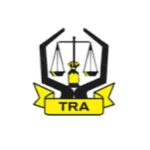
TRA
TRA Assistant Accounts Officer: 30 Interview Questions & Answers
If you’re applying for the Assistant Accounts Officer position at the Tanzania Revenue Authority (TRA), this Q&A guide will help you prepare by covering the essential duties, skills, and qualifications for the role.
1. What is the main role of an Assistant Accounts Officer at TRA?
Answer: The role involves managing financial transactions, including handling cash/cheque receipts, maintaining petty cash, recording revenue transactions, and preparing daily cash sheets.
2. How many Assistant Accounts Officer positions are available?
Answer: There are 10 vacant positions for Assistant Accounts Officer at TRA.
3. What qualifications are required for this role?
Answer: A Diploma in Accountancy, Finance, or a related field is required.
4. Are there any preferred languages for this position?
Answer: Yes, proficiency in English and Swahili is preferred for effective communication.
5. What does handling cash/cheque receipts entail?
Answer: It involves receiving payments, issuing receipts to taxpayers, and ensuring accuracy in handling cash or cheques according to TRA guidelines.
6. How do you maintain petty cash effectively?
Answer: Petty cash is maintained by recording all transactions, reconciling balances regularly, ensuring proper documentation, and following TRA’s financial policies.
7. Why are daily cash sheets important?
Answer: Daily cash sheets are essential for summarizing cash transactions, ensuring transparency, accuracy, and accountability in revenue collection.
8. What skills are essential for recording revenue transactions?
Answer: Key skills include attention to detail, basic accounting knowledge, and familiarity with financial software or manual ledgers.
9. How do you prepare a daily cash sheet?
Answer: I’d summarize all cash inflows and outflows, verify totals with receipts, and submit the sheet for review based on TRA’s procedures.
10. What is the process for dispatching cheques?
Answer: Cheques are prepared, verified for accuracy, signed by authorized personnel, and sent to the intended recipients with proper tracking.
11. How do you track revenue transfers?
Answer: Track revenue transfers by monitoring bank statements, cross-checking transfer records, and ensuring all transactions are reflected in TRA’s financial systems.
12. What challenges might you face in this role?
Answer: Challenges include high transaction volumes, maintaining accuracy under pressure, and resolving discrepancies quickly.
13. How can you overcome errors in cash handling?
Answer: I’d double-check transactions, maintain clear records, and report discrepancies immediately to supervisors for quick resolution.
14. What tools might TRA use for revenue tracking?
Answer: TRA may use accounting software, spreadsheets, or internal systems to monitor and track revenue transactions.
15. Why is accuracy important in this role?
Answer: Accuracy ensures correct revenue collection, prevents financial losses, and maintains TRA’s integrity in handling public funds.
16. How does this role contribute to TRA’s goals?
Answer: This role directly supports revenue collection, a core function of TRA, ensuring that funds are available for national development and public service projects.
17. What is petty cash used for at TRA?
Answer: Petty cash is used for small, immediate expenses, such as office supplies or minor operational costs.
18. How often should petty cash be reconciled?
Answer: Petty cash should be reconciled daily or weekly, depending on TRA’s internal policies to ensure accurate records.
19. Can you work under minimal supervision in this role?
Answer: Yes, this role requires independence, but I understand that teamwork and adhering to guidelines are also crucial.
20. What is the importance of Swahili in this role?
Answer: Swahili is vital for communicating effectively with local taxpayers and colleagues, especially for tasks like explaining processes and addressing concerns.
21. How do you ensure compliance with TRA policies?
Answer: By following standard operating procedures, staying updated on regulations, and seeking guidance when uncertain.
22. What experience prepares you for this role?
Answer: Previous work in accounting, cash handling, or financial record-keeping is great preparation for this role.
23. How do you handle a discrepancy in revenue records?
Answer: I would investigate the source of the discrepancy, document findings, and report the issue to a supervisor for resolution.
24. What motivates you to join TRA as an Assistant Accounts Officer?
Answer: The opportunity to contribute to national revenue collection and grow in a reputable government organization motivates me.
25. How do you stay organized in this role?
Answer: I use checklists, prioritize tasks, and maintain organized records to ensure responsibilities are managed efficiently.
26. What is the role of teamwork in this position?
Answer: Collaboration with colleagues ensures smooth operations and helps resolve issues quickly, ensuring accurate financial management.
27. How do you handle high-pressure situations?
Answer: I stay calm, focus on accuracy, and seek support from colleagues or supervisors if needed to meet deadlines or resolve issues.
28. What does a typical day look like for an Assistant Accounts Officer?
Answer: A typical day involves receiving payments, updating records, preparing cash sheets, and dispatching cheques for authorized transactions.
29. How do you improve your accounting skills for this role?
Answer: I attend training, practice with accounting tools, and stay updated on financial best practices and new regulations.
30. What makes you a good fit for this role at TRA?
Answer: A Diploma in Accountancy, proficiency in English and Swahili, attention to detail, and commitment to accuracy make me a strong candidate for this role.
Final Tips for Your TRA Assistant Accounts Officer Interview
- Emphasize your attention to detail and organizational skills.
- Show your ability to work independently and under pressure.
- Be prepared to discuss your experience with accounting tools or cash handling.
Would you like help preparing answers based on your personal experience?




